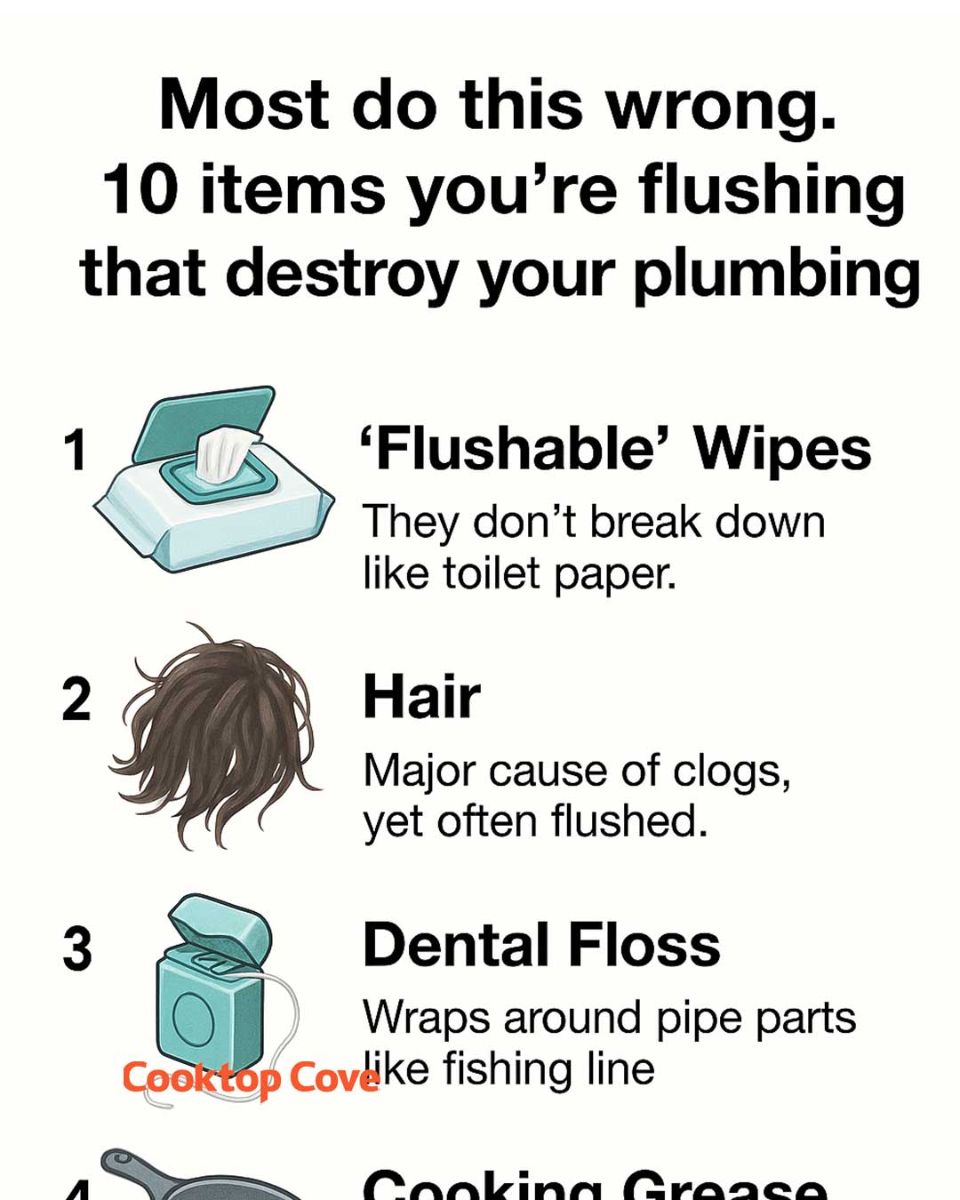In our daily lives, the convenience of flushing things down the toilet often overshadows the potential damage it can cause to our plumbing systems. Many people unknowingly flush items that, over time, lead to severe blockages, costly repairs, and environmental harm. Understanding what should and shouldn’t be flushed is crucial for maintaining a healthy plumbing system and protecting our environment.
While toilets are designed to handle human waste and toilet paper, they are not equipped to process a wide array of items that people often dispose of in this manner. This article highlights ten common items that are frequently flushed but can wreak havoc on plumbing systems. By being informed, you can avoid unnecessary plumbing issues and contribute to a healthier environment.
Advertisement
1. Flushable Wipes: The Misleading Label
Despite being marketed as flushable, most wipes do not break down like toilet paper. They are often made of synthetic materials that do not disintegrate quickly in water. Studies have shown that flushable wipes can take weeks or even months to break down, leading to severe blockages in pipes and sewage systems. In fact, a single wipe can cause a blockage that requires professional intervention to clear, often costing hundreds of dollars in plumbing repairs.
Municipalities around the world have reported significant issues with flushable wipes, with some cities spending millions annually to clear blockages caused by these products. It’s essential to dispose of wipes in the trash rather than the toilet to prevent these costly and environmentally damaging clogs.
2. Hair: The Silent Clog Maker
Hair is a common culprit when it comes to plumbing issues, particularly in bathroom drains. When flushed, hair can tangle and combine with other debris, forming large clumps that obstruct pipes. A single strand of hair might seem harmless, but over time, it can accumulate into a significant blockage. In fact, hair is one of the most common causes of slow drains and clogs.
To prevent hair from causing plumbing issues, consider using a drain cover to catch hair before it enters the plumbing system. Regularly cleaning these covers can help maintain clear drains and prevent costly plumbing repairs.
3. Dental Floss: A Tangled Mess
Dental floss is another item that should never be flushed. Made from nylon or Teflon, dental floss is not biodegradable and can easily wrap around other debris in pipes, creating a tangled mess that leads to blockages. When flushed, dental floss can also contribute to the formation of fatbergs—large masses of fat, oil, and other non-biodegradable materials that clog sewer systems.
To avoid these issues, always dispose of dental floss in the trash. This simple step can help prevent plumbing problems and reduce the risk of costly repairs.
4. Cooking Grease: The Hidden Culprit
Cooking grease and oils may seem harmless when poured down the drain, but they can solidify and cause significant blockages in plumbing systems. When hot, grease is liquid, but as it cools, it solidifies and adheres to the walls of pipes, gradually narrowing the passageway and leading to clogs. In fact, grease is one of the leading causes of sewer overflows and backups.
To properly dispose of cooking grease, let it cool and solidify, then scrape it into a container and throw it away with your regular trash. This practice can help maintain clear pipes and prevent costly plumbing issues.
5. Cotton Swabs: Small but Mighty Blockers
see next page
